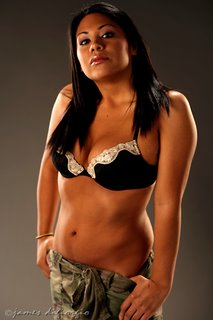 Of all the visual arts, very few combines science and art quite the way photography does.
Of all the visual arts, very few combines science and art quite the way photography does.For photographers, it's not enough to have vision, skill, and talent in rendering artistic images for the benefit of appreciative viewers.
Skilled photographers need to understand, and be able to apply, some of the same fundamental "art" skills as does a painter or a sculptor. Photographers also need to learn to utilize the science and technology of photography which keeps growing at a rapid pace. In other words, skilled photographers need to be artists and craftsmen, as well as technicians.
Sure, modern photo-capturing devices, in many ways, make it easier than ever before to capture quality images. The engineering that goes into cameras these days enables just about anyone to pick one up and snap minimally competent pictures, i.e., in terms of exposure and other technical aspects of those images: it's called shooting in auto-modes.
But auto-modes are limiting. While they do have their appropriate uses in many shooting situations, anyone pursuing photography as a career or a serious avocation will soon find themselves reaching competency limits if they depend, solely, on auto-modes like aperture-priority, shutter-priority, and full-auto. I don't know about you, but I don't want algorithms and autonomous sensors making all my decisions for me.
 As artists, photographers must learn and understand art's many fundamental rules. As an example: The rules of composition. I'm not saying these rules can't be broken. I'm only saying photographers need to understand them before they're able to break them in effective ways. But that's not enough. As technicians, photographers also need to learn how to manipulate exposure and light, and they need to learn many more technical skills as well. In other words, photographers must learn the science and (purely) technical aspects of photography in addition to the fundamentals of art and design.
As artists, photographers must learn and understand art's many fundamental rules. As an example: The rules of composition. I'm not saying these rules can't be broken. I'm only saying photographers need to understand them before they're able to break them in effective ways. But that's not enough. As technicians, photographers also need to learn how to manipulate exposure and light, and they need to learn many more technical skills as well. In other words, photographers must learn the science and (purely) technical aspects of photography in addition to the fundamentals of art and design.In today's auto-driven world--no, I'm not talking about automobiles--I'm seeing fewer young and/or novice photographers who possess real skills and knowledge in the art and craft of photography, much less true technical expertise. That's a shame. Attaining those skills is a lengthy learning process. Why some people feel they should be regarded as expert photographers without any real expert knowledge and skill is beyond me. I think it goes back to their reliance on the so-called, full-feature auto-modes.
Personally, I think it's incredibly important--make that, compulsory--to invest the time it takes to learn the craft of photography; if you hope, that is, to achieve high levels of skill and accomplishment. That learning experience is a life-long quest. Take me-- I have many years of experience and yet I'm still constantly reminded, and amazed, by all I don't yet know about this thing we do.
Okay. I'm off my soapbox. (Since it's photography, I guess that should read, "Okay. I'm off my apple-box.") The hot tamale providing eye-candy and some welcome blather-relief from this photo-sermon is Cassandra.

1 comment:
I use auto-zones to get a sence for what my shutter and apetrure settings should be then I switch to manual mode to experiment until I get the settings that I like. But I'm guilty for using auto-zones for unchallenging shooting situations.
Post a Comment